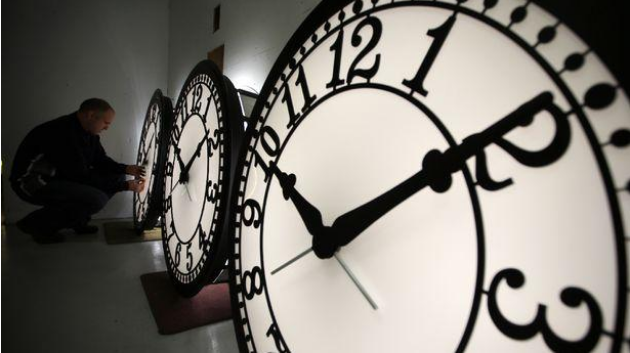
As most people no doubt noticed given that they were robbed of an hour of sleep, Sunday marked the beginning of Daylight Savings Time in the United States, Canada, and several other countries in North America. For morning people, Daylight Savings is depriving them of an hour of silent morning light.
Like millions of other Americans who have went through cold winter, I'm looking forward to the change of season. But Daylight Savings Time is an annual tradition whose time has passed. Now it's not only unnecessary: It's also wasteful. And it's time to say goodbye to it.
Daylight Savings has been an official decision since 1918, when President Woodrow Wilson made it into law during World War One. Nowadays, its purpose is to save energy: One more hour of sunlight in the evening means one less hour of consumption of lighting. In 2005, President George W. Bush lengthened Daylight Savings Time by a month as part of a sweeping energy bill signed that year, supporting the need to reduce U.S. dependency on foreign oil.
But does Daylight Savings Time actually make much of a difference? Evidence suggests that the answer is no. After the Australian government extended Daylight Savings Time by two months in 2000 in order to accommodate the Sydney Olympic Games, a study showed that the move failed to reduce electricity demand at all. More recently, a study of homes in Indiana—a state that adopted Daylight Savings Time only in 2006—showed that the savings from electricity use were negated by additional use of air conditioning and heat.
The simple act of adjusting to the time change. Many people feel the effects of the "spring forward" for longer than a day; a study showed that Americans lose around 40 minutes of sleep on the Sunday night after the shift. This means more than just additional yawns on Monday: the resulting loss in productivity costs the economy an estimated $434 million a year.
本时文内容由奇速英语国际教育研究院原创编写,禁止复制和任何商业用途,版权所有,侵权必究!
1.When people use Daylight Savings Time, in the morning they should _____.
A get up one hour earlier
B stay in bed longer
C need one hour of sleep
D keep quite silent
解析:选A。A。推理判断题。根据第1段最后1句的For morning people, Daylight Savings is a depriving them of an hour of silent morning light.可知夏时制剥夺了他们睡觉的时间,这就意味着他们要早起一个小时。
2.How does the writer think of Daylight Savings Time?
A It should be got rid of.
B It saves a lot of time.
C It is a tradition to keep.
D It wastes no time at all.
解析:选A。A。细节理解题。根据文章第2段最后两句的It's also wasteful. And it's time to say goodbye to it可知作者认为应该和夏令时说再见了,也就是要去掉这种作息时间。
3.When did Daylight Savings time come into practice in U.S.?
A In 2006.
B In 2005.
C In 1918.
D In 1784.
解析:选C。C。细节理解题。根据第3段第1句的Daylight Savings has been an official decision since 1918, when President Woodrow Wilson made it into law during World War One可知是在1918年的时候夏令时正式实施的。
4.The underlined phrase “the move” may refer to ______.
A Holding Sydney Olympic Games
B Making much of a difference
C Adopting Daylight Savings Time
D Reducing the electricity demand
解析:选C。C。词意指代题。根据第4段第3句的After the Australian government extended Daylight Savings Time by two months in 2000可以得知澳大利亚引进夏时制这一“举措”,即为下文的the move。
5.What bad effect will Daylight Savings bring in?
A The savings of electricity.
B Less import of foreign oil.
C The loss in productivity.
D The sooner change of season.
解析:选C。C。细节理解题。根据文章最后1段最后1句的the resulting loss in productivity costs the economy an estimated $434 million a year可知夏令时会造成生产效率的低下。